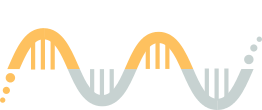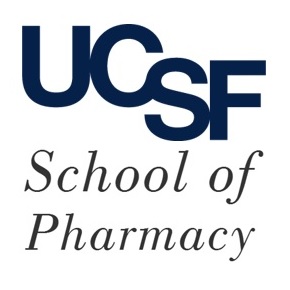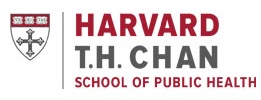Publications
Export 44 results:
Author Title [ Year ]
] Filters: Keyword is Genome-Wide Association Study [Clear All Filters]
Cohort-specific imputation of gene expression improves prediction of warfarin dose for African Americans. Genome Med 9, 98 (2017).
Covariate selection for association screening in multiphenotype genetic studies. Nat Genet 49, 1789-1795 (2017).
Current Challenges and New Opportunities for Gene-Environment Interaction Studies of Complex Diseases. Am J Epidemiol 186, 753-761 (2017).
Estimating the selective effects of heterozygous protein-truncating variants from human exome data. Nat Genet 49, 806-810 (2017).
A genetic stochastic process model for genome-wide joint analysis of biomarker dynamics and disease susceptibility with longitudinal data. Genet Epidemiol 41, 620-635 (2017).
Improved methods for multi-trait fine mapping of pleiotropic risk loci. Bioinformatics 33, 248-255 (2017).
Incorporation of Biological Knowledge Into the Study of Gene-Environment Interactions. Am J Epidemiol 186, 771-777 (2017).
Lessons Learned From Past Gene-Environment Interaction Successes. Am J Epidemiol 186, 778-786 (2017).
Limited statistical evidence for shared genetic effects of eQTLs and autoimmune-disease-associated loci in three major immune-cell types. Nat Genet 49, 600-605 (2017).
Testing for the indirect effect under the null for genome-wide mediation analyses. Genet Epidemiol 41, 824-833 (2017).
VEXOR: an integrative environment for prioritization of functional variants in fine-mapping analysis. Bioinformatics 33, 1389-1391 (2017).
A common loss-of-function variant is associated with lower vitamin B concentration in African Americans. Blood 131, 2859-2863 (2018).
Fine-mapping and functional studies highlight potential causal variants for rheumatoid arthritis and type 1 diabetes. Nat Genet 50, 1366-1374 (2018).
Functional architecture of low-frequency variants highlights strength of negative selection across coding and non-coding annotations. Nat Genet 50, 1600-1607 (2018).
Imputation-Aware Tag SNP Selection To Improve Power for Large-Scale, Multi-ethnic Association Studies. G3 (Bethesda) 8, 3255-3267 (2018).
Medical relevance of protein-truncating variants across 337,205 individuals in the UK Biobank study. Nat Commun 9, 1612 (2018).
Multiple phenotype association tests using summary statistics in genome-wide association studies. Biometrics 74, 165-175 (2018).
Quantifying the Polygenic Contribution to Cutaneous Squamous Cell Carcinoma Risk. J Invest Dermatol 138, 1507-1510 (2018).
Adjusting for Principal Components of Molecular Phenotypes Induces Replicating False Positives. Genetics 211, 1179-1189 (2019).
A Bayesian framework that integrates multi-omics data and gene networks predicts risk genes from schizophrenia GWAS data. Nat Neurosci 22, 691-699 (2019).
Global Biobank Engine: enabling genotype-phenotype browsing for biobank summary statistics. Bioinformatics 35, 2495-2497 (2019).
Methods for the Analysis and Interpretation for Rare Variants Associated with Complex Traits. Curr Protoc Hum Genet 101, e83 (2019).
A multi-task convolutional deep neural network for variant calling in single molecule sequencing. Nat Commun 10, 998 (2019).
Opportunities and challenges for transcriptome-wide association studies. Nat Genet 51, 592-599 (2019).
Allelic Heterogeneity at the CRP Locus Identified by Whole-Genome Sequencing in Multi-ancestry Cohorts. Am J Hum Genet 106, 112-120 (2020).
Assessing Digital Phenotyping to Enhance Genetic Studies of Human Diseases. Am J Hum Genet 106, 611-622 (2020).
On the cross-population generalizability of gene expression prediction models. PLoS Genet 16, e1008927 (2020).
Dynamic incorporation of multiple in silico functional annotations empowers rare variant association analysis of large whole-genome sequencing studies at scale. Nat Genet 52, 969-983 (2020).
A fast and scalable framework for large-scale and ultrahigh-dimensional sparse regression with application to the UK Biobank. PLoS Genet 16, e1009141 (2020).
Identifying causal variants and genes using functional genomics in specialized cell types and contexts. Hum Genet 139, 95-102 (2020).
Improving the trans-ancestry portability of polygenic risk scores by prioritizing variants in predicted cell-type-specific regulatory elements. Nat Genet 52, 1346-1354 (2020).
A phenome-wide association study of 26 mendelian genes reveals phenotypic expressivity of common and rare variants within the general population. PLoS Genet 16, e1008802 (2020).
A positively selected FBN1 missense variant reduces height in Peruvian individuals. Nature 582, 234-239 (2020).
Rare protein-altering variants in ANGPTL7 lower intraocular pressure and protect against glaucoma. PLoS Genet 16, e1008682 (2020).
A Robust Method Uncovers Significant Context-Specific Heritability in Diverse Complex Traits. Am J Hum Genet 106, 71-91 (2020).
A Transcriptome-Wide Association Study Identifies Candidate Susceptibility Genes for Pancreatic Cancer Risk. Cancer Res 80, 4346-4354 (2020).
A cross-population atlas of genetic associations for 220 human phenotypes. Nat Genet 53, 1415-1424 (2021).
Disentangling selection on genetically correlated polygenic traits via whole-genome genealogies. Am J Hum Genet 108, 219-239 (2021).
Graphical analysis for phenome-wide causal discovery in genotyped population-scale biobanks. Nat Commun 12, 350 (2021).
RAFFI: Accurate and fast familial relationship inference in large scale biobank studies using RaPID. PLoS Genet 17, e1009315 (2021).
Regulatory genomic circuitry of human disease loci by integrative epigenomics. Nature 590, 300-307 (2021).





